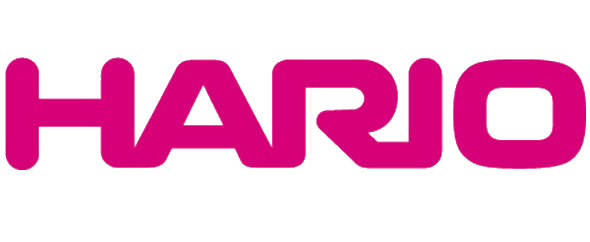Ancient Beverages and Modern Games: Connecting History and Entertainment #8
The interplay between ancient cultural elements and contemporary entertainment forms a fascinating bridge that enriches our understanding of history while providing engaging experiences today. From the ceremonial use of fermented drinks in ancient rituals to the mythological themes woven into modern video games, these connections demonstrate how humanity preserves and transforms its cultural heritage across millennia. Recognizing these links not only deepens appreciation for our shared past but also enhances our engagement with current media and leisure activities.
Table of Contents
- The Role of Ancient Beverages in Cultural Rituals and Social Life
- Mythological Foundations of Beverages and Their Cultural Significance
- The Universality of Thunder Deities and Their Symbolism
- Evolution from Ancient Rituals to Modern Games and Entertainment
- Le Zeus: A Modern Illustration of Ancient Themes in Entertainment
- The Intersection of Comedy, Tragedy, and Myth in Ancient and Modern Contexts
- Non-Obvious Connections: Deeper Layers of Meaning and Cultural Transmission
- Educational Implications and Opportunities for Engagement
- Conclusion: Bridging History and Entertainment for a Richer Cultural Understanding
The Role of Ancient Beverages in Cultural Rituals and Social Life
Ancient societies often centered their social and religious lives around distinctive beverages such as mead, wine, beer, and fermented fruit drinks. These drinks were not merely sustenance; they symbolized societal values, spiritual beliefs, and community cohesion. For example, in Mesopotamia, beer was integral to religious offerings and social festivals, serving as a unifying element among diverse groups.
Historical evidence, including archaeological finds like ancient pottery and inscriptions, reveals that beverages played a vital role in rituals—such as offerings to gods—and in communal feasts that reinforced social bonds. These practices helped define cultural identities, reinforcing shared norms and collective memory.
The societal importance of these drinks extended beyond their physical consumption. They often embodied divine favor or auspiciousness, as seen in the prominence of wine in ancient Greece and Rome, where it was associated with gods like Dionysus and Bacchus. Such associations contributed to the cultural fabric that persists even today in various forms of entertainment and storytelling.
Mythological Foundations of Beverages and Their Cultural Significance
Myths surrounding beverages often reflect societal values and spiritual beliefs. In Greek mythology, Dionysus is the god of wine, ecstasy, and theatre. His myth encapsulates themes of transformation, divine madness, and social cohesion. The story of Dionysus’ birth and his gift of wine underscores the beverage’s sacred status and its role in fostering communal bonds.
Similarly, in Norse mythology, the mead of poetry—a divine drink associated with the gods—symbolized wisdom and poetic inspiration. These myths served to explain the origins of sacred drinks and embed them into cultural rituals, emphasizing their spiritual significance and influence on societal norms.
The narratives about gods and spirits linked to beverages often encode moral lessons or societal ideals. For instance, the Greek stories highlight moderation, divine favor, and the transformative power of wine, shaping cultural practices that continue to influence modern rituals and entertainment.
The Universality of Thunder Deities and Their Symbolism
Across many Indo-European cultures, thunder gods such as Zeus in Greece, Thor in Norse mythology, and Perun in Slavic traditions serve as cosmic enforcers, maintaining cosmic order and justice. These deities often wield lightning and thunder as symbols of divine authority, power, and the natural forces that uphold societal stability.
For example, Zeus’s thunderbolt represented divine intervention and sovereignty, while Thor’s hammer was a symbol of protection and strength. Perun’s thunder was associated with authority and the eradication of chaos, reflecting societal values about justice and order.
These thunder deities frequently appear in mythological storytelling, rituals, and even modern entertainment, exemplifying the enduring human fascination with divine power and natural phenomena. Their symbolism often permeates popular narratives, inspiring themes of heroism, conflict, and cosmic balance.
Evolution from Ancient Rituals to Modern Games and Entertainment
Cultural symbols and mythological themes have seamlessly transitioned into contemporary media, including movies, literature, and video games. Ancient motifs—such as divine intervention, heroic quests, and symbolic weapons—are frequently repurposed to create compelling narratives that resonate with modern audiences.
For example, the depiction of gods and mythic battles in films like Marvel’s Thor series echoes ancient Norse mythology, while video games incorporate mythological themes to build immersive worlds. These adaptations serve to preserve cultural heritage, making it accessible and relevant to new generations.
Storytelling remains central to this evolution, transforming ancient myths into engaging entertainment while maintaining their core messages. This process demonstrates how cultural motifs are not static but evolve, enriching contemporary storytelling with historical depth and symbolic complexity.
Le Zeus: A Modern Illustration of Ancient Themes in Entertainment
One illustrative example of this ongoing transformation is GODS JUST WANNA HAVE FUN, a modern game inspired by mythological themes. While not the centerpiece of this article, it exemplifies how ancient stories are adapted into engaging digital experiences, combining entertainment with educational value.
In “Le Zeus,” mythological elements such as thunder gods, divine powers, and heroic quests are employed to create immersive gameplay. This approach enhances user engagement by tapping into collective cultural archetypes, making ancient themes accessible and entertaining for contemporary audiences.
Integrating mythology into modern games demonstrates the potential for entertainment to serve as a vessel for cultural transmission. Such adaptations can foster a deeper understanding of ancient beliefs while providing fun, interactive learning experiences.
The Intersection of Comedy, Tragedy, and Myth in Ancient and Modern Contexts
Ancient Greek theatre, with its genres of comedy and tragedy, reflected societal values and mythological narratives. Comedies often satirized gods and rulers, while tragedies explored profound moral and existential themes through mythic stories. These theatrical forms served as mirrors of societal attitudes and moral lessons.
Modern storytelling and game design continue to draw inspiration from these genres. For instance, contemporary video games frequently incorporate tragic characters or humorous dialogues that echo ancient theatrical themes, allowing audiences to explore complex human emotions within mythic frameworks.
Humor and tragedy remain powerful tools in entertainment, facilitating reflection on societal norms and human nature. This enduring influence underscores the importance of myth and theatre in shaping how we tell stories today.
Non-Obvious Connections: Deeper Layers of Meaning and Cultural Transmission
Ancient myths about gods, beverages, and moral lessons encode complex societal norms and archetypes that continue to influence modern narratives. For example, the archetype of the hero’s journey, rooted in mythological stories like Hercules or Odin, appears ubiquitously in contemporary literature and games, symbolizing growth, challenge, and moral integrity.
Symbols such as the thunderbolt or divine feast serve as visual cues that connect modern audiences to historical themes, often subtly conveying messages about power, morality, and societal order. These motifs act as cultural DNA, transmitted across generations through storytelling, art, and entertainment.
Furthermore, aesthetic choices—like the use of lightning imagery or divine figures—are deeply rooted in ancient cultural motifs, lending modern entertainment a layer of symbolic richness that resonates on subconscious levels.
Educational Implications and Opportunities for Engagement
Modern games and interactive media offer unique opportunities to teach ancient history and mythology. By engaging players with mythological themes, creators can foster curiosity and facilitate learning about historical contexts, religious practices, and cultural symbolism.
Designing educational content around popular entertainment, such as integrating mythological stories into gameplay or storytelling modules, can make learning more compelling and memorable. For example, incorporating lessons about Greek gods into game narratives encourages exploration of ancient beliefs and their modern legacies.
Encouraging critical thinking about how cultural symbols evolve and persist helps learners appreciate the continuity of human storytelling and the importance of preserving cultural heritage. The ongoing dialogue between history and entertainment enriches both fields, making education engaging and relevant.
Conclusion: Bridging History and Entertainment for a Richer Cultural Understanding
Throughout history, beverages, myths, and divine symbols have served as foundational elements shaping societal values and cultural identities. Their influence persists today, transcending ancient rituals to inspire modern games, movies, and literature. Recognizing these connections enhances our appreciation of cultural continuity and demonstrates how storytelling remains a vital tool for education and entertainment.
By understanding the deep roots of mythological themes and their symbolic significance, we can better appreciate the richness of modern entertainment and its capacity to transmit cultural knowledge. Incorporating these elements thoughtfully, as seen in innovative projects like GODS JUST WANNA HAVE FUN, exemplifies how historical themes can be both preserved and reimagined, fostering a more profound cultural dialogue for future generations.


















